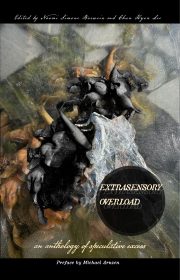Project Scarlet Eagle
by Sylvia Spruck Wrigley
As a science fiction writer, I’m always on the lookout for cutting edge technologies that might spark an idea for a story. This time, an initiative called Project Scarlet Eagle came looking for me. At first it was all hush-hush, but now I have permission to tell you everything[1].


